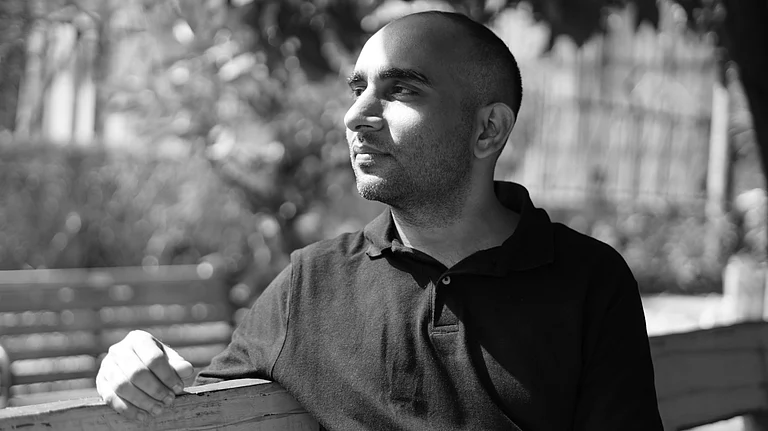The TV serial of Tinker, Tailor, Soldier, Spy opens with a sequence of Russian matryoshka dolls with malevolent faces, emerging one out of the other, until the innermost doll emerges, with a face that is chillingly blank. And that seems to capture everything John le Carre is all about—his books, as well as his own personal life. A riddle, inside an enigma, inside a mystery.
What le Carre has created is, in fact, not so much a series of books as a special world of his own, rather like William Faulkner’s Yoknapatawpha County or R.K. Narayan’s Malgudi. A complex, ambiguous world, inhabited by people like Smiley, Toby Esterhase, Peter Guillam and Karla, where the laws of gravity work slightly differently, and they speak a special language of their own, with words like ‘tradecraft’, ‘lamplighters’, ‘cousins’, ‘babysitters’ and ‘moles’. And once you’ve entered this strange, parallel world, you feel the need for a secret map to navigate your way around. Sisman’s biography is the closest we’ve come to such a map.
There are, we learn, curious parallels between le Carre’s novels and his own life, which go far deeper than the fact that he once worked for British intelligence. His early years were, in fact, the story of Magnus Pym, protagonist of A Perfect Spy: brought up by a deceitful, conman father; deserted by his mother as an infant; educated at a ghastly boarding school; inveigled into becoming a spy at university. But it was his conman father who was his greatest influence: a talented liar who could simultaneously have one hand around your shoulder and the other in your pocket; a man usually tap-dancing just one step ahead of the law. That is what, le Carre claims, made him what he is. In his own words, “I’m a liar. Born a liar, bred to it, trained to it by an industry that lies for a living.” Which helps explain the deceptive, ambivalent world of half-truths, falsehoods and betrayals that he created so masterfully with his novels.
This 600-plus-page book answers many of the questions that any le Carre fan might have. The brilliant, rumpled, vulnerable George Smiley, in case you ever wondered, was based mainly on Vivian Greene, rector of Lincoln College, Oxford, and MI5 talent-spotter. The matter of Smiley’s wife, the promiscuous, cheating Ann, is more complicated: the name of le Carre’s own first wife happened to be Anne. But it was le Carre himself who did the cheating, prolifically and shamelessly (at one time even cuckolding his best friend), which led to the break-up of le Carre’s marriage, as well as to the writing of The Naive and Sentimental Lover, his worst novel. If there’s a flaw in this book, however, it is the fact that Sisman appears to hold back from any kind of literary assessment of le Carre’s work. So is he a writer of serious literary fiction (as one school of thought, led by Philip Roth, holds)? Or is he just a glorified ‘genre writer’ of spy thrillers (as another, led by Salman Rushdie, insists)?
Le Carre has always turned down various offers for his biography to be written, but finally he chose Sisman to write it. There was one proviso, however: the book must respect le Carre’s privacy and feelings. Sisman has done a remarkable job. But now that this voluminous biography is out, le Carre has surprised everybody by announcing that he is going to publish his own memoirs shortly. Which means that there will ultimately be two, perhaps three, versions of the truth, Rashomon-like, that we will have to choose between. This complicated body of half-truths and manufactured fantasies will thus be le Carre’s enduring legacy. How very appropriate.
























